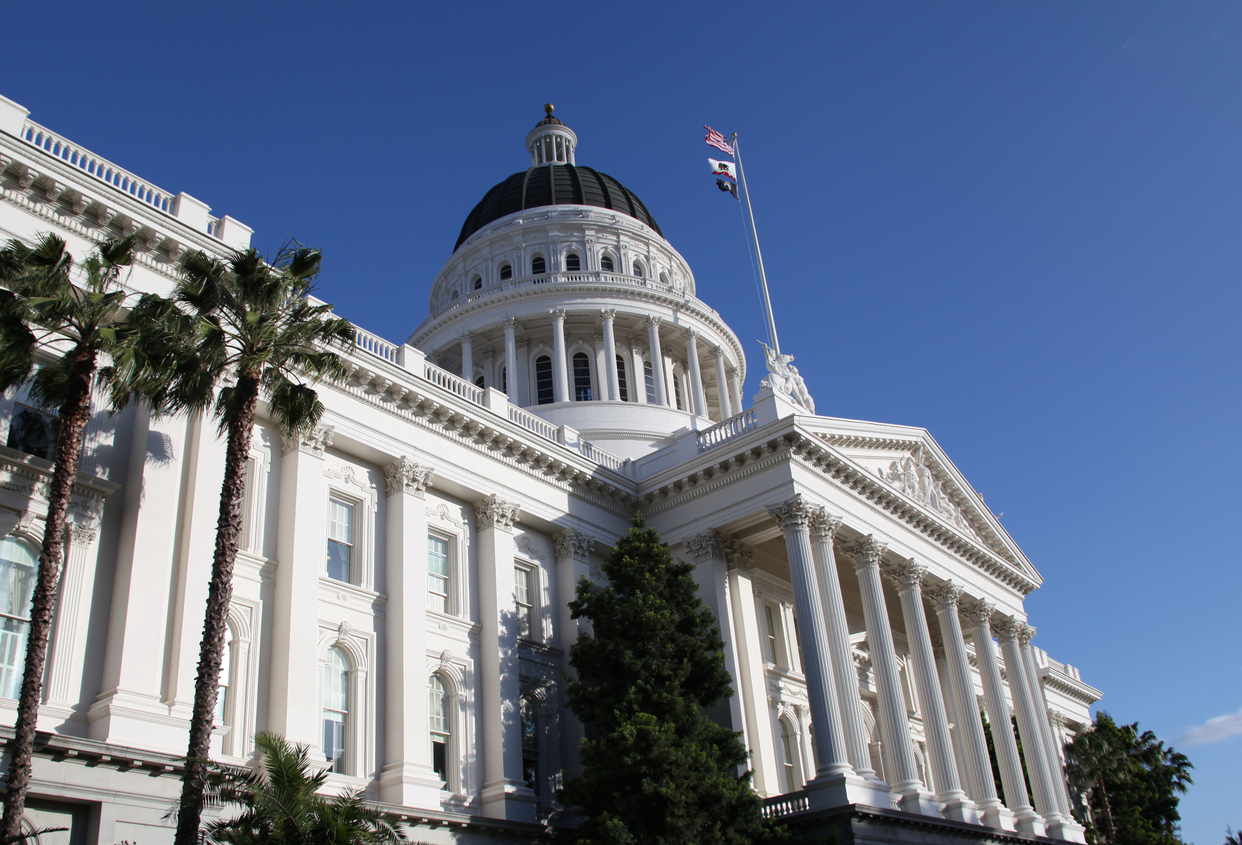
March Toward April 18th
Tax season is now underway!
In this month’s newsletter, we share the secret to getting a quick tax refund.
Also, we have information for you regarding the California State and Local Tax Deduction workaround via SB113 recently signed into law.
Further, the Franchise Tax Board is sending bulk letters, but don’t panic if you receive a notice from the FTB.
Please enjoy the information, and pass along articles of interest to all your family and friends. And as always, please call if you have questions or need help.
Best,
Steve Moskowitz, Esq.
Founding Partner
Please call if you would like to discuss how this information could impact your situation. If you know someone who could benefit from this newsletter, feel free to send it to them.
Upcoming Dates
- March 15
-Due date for partnership and S corporation tax returns (Forms 1065, 1120S)
– SB113 payments must be made if choosing to elect - April 18
– Individual Tax Returns due
In This Issue
- The Secret to a Quick Tax Refund
- California News: SB113
- FTB Letters went out
- Schedule C – Opportunity to Self-Correct
- Listen to our Podcast on ‘Filing for an Extension’
- Steve’s Recent Appearances

The Secret to a Quick Tax Refund
Here’s how to get your over-payment as soon as possible!
Delayed tax refunds, penalties for not filing 2020 tax returns on time that were actually filed on time, and timely tax payments being flagged as late are just some of the headaches taxpayers are grappling with due to a massive backlog of several million unprocessed tax returns the IRS is trying to wade out from under.
Here’s how to avoid getting your tax refund delayed and steer clear from late-filing and payment penalties resulting from the IRS backlog:
- E-file your return! The secret to getting a quick tax refund is to e-file your 2021 tax return! The IRS says approximately 90% of the more than 160 million individual tax returns expected for the 2021 tax year will be e-filed. The majority of these taxpayers will avoid any issues filing their return and getting their refund. If you do e-file, don’t forget to sign Form 8879, which authorizes the e-filing of your return.
- Stay calm if you receive a letter from the IRS. You may receive an IRS notice indicating you have an unfiled tax return or that you have an unpaid balance on your account. If the notice was mailed because of the backlog and you indeed filed the tax return in question or paid the amount due listed, the IRS says there is no need to call or respond to the notice as it’s continuing to process prior year tax returns as quickly as possible. Be sure to let Moskowitz LLP know of the letter.
- Create your ID.Me Account so that you can help Moskowitz LLP by providing important notices, allowing us to get real time information from the IRS, and more. Here’s how:Moskowitz LLP STRONGLY urges you to set up your online accounts with the IRS and your State tax agency.
By registering, you will be able to see real-time account activity, retrieve important tax documents & ID PINS, make payments, and importantly, allow us to work together more quickly as your tax representatives.
It is simple to do and if you run into any problems, we are here to help.
For Internal Revenue Service:
First, go to IRS.gov
- Select: ID.Me ‘Create New Account’
- Pass secure access authentication:
– Have your Driver’s License handy
– Have a Smart Phone handy (for confirmation codes and pictures)
– Create a Profile - Let us know you created an account so we can utilize this new technology
Watch a helpful ‘how to’ video here
For California Franchise Tax Board:
- Create: My FTB Account
Individuals/ Businesses: You will need your recent California Tax return information - Wait for PIN
You should receive your PIN by U.S. - Activate Account
Log in and enter your PIN within 21 days. - Let us know!

California News: SB113
California just enacted Senate Bill 113 (SB 113), which made California’s new passthrough entity elective tax much more attractive for certain owners of S corporations, partnerships, and LLCs taxed as a partnership or S corporation.
Many of the limitations and drawbacks to paying this tax were just recently removed by SB 113. Now, this pass-through entity elective tax can dramatically reduce the tax liability of many more taxpayers.
This is because if the entity elects to pay the tax at the entity level it reduces the amount of federal K-1 income passed through to you. The entity is not subject to the $10,000 state and local tax (SALT) limitation enacted by the Tax Cuts and Jobs Act, so it can claim a significantly higher tax deduction than you can on your individual return. Plus, you get to claim up to a 100% credit on your California return for your share of the tax paid by the entity.
Prior to SB 113, there were significant limitations that made this option unattractive for many taxpayers. However this new law greatly improved this elective tax option by:
- Eliminating tentative minimum tax limitations;
- Including guaranteed payments paid to partners/LLC members in the tax base; and
- Expanding which entities can make the election and the types of owners for whom the tax may be paid.
If you are a shareholder, partner or member of an S corporation, partnership, or LLC taxed as a partnership or S corporation, you might be able to significantly reduce your tax liability as a result of this greatly expanded SALT workaround.
This may be quite beneficial, but there are a lot of factors to consider in evaluating whether it makes sense for a passthrough entity to make the election, and whether you should consent to have the entity pay tax on your share of the entity’s income.
Make an appointment as soon as possible so we can discuss whether California’s passthrough entity tax will benefit you.

FTB Letters Went Out
Partnership ID numbers
Due to a system update to accommodate AB 85, which exempts LLCs, LPs, and LLPs from the annual tax for the first year, entities without a Secretary of State ID on file with the FTB (even if they had an EIN on file) were issued a temporary FTB ID number. FTB Notice 763B was issued to notify the entity of their assigned temporary FTB ID number. The FTB website states:
If the entity is a non-registered partnership that is no longer doing business in California, contact the FTB at (800) 852-5711 to close the account.
If the entity is a nonregistered partnership doing business in California, use the assigned temporary ID number on the notice to file a return and/or make a payment to the FTB. The FTB has confirmed that other taxpayers are not required to use this number for FTB filing or payment purposes.

Schedule C- Opportunity to Self-Correct
Selected taxpayers who reported large Schedule C expenses will receive self-correct letters.
The Franchise Tax Board (FTB) will begin an outreach effort by sending self-correct letters to selected taxpayers who reported large Schedule C expenses on their 2019 tax returns that are “significantly higher than expected.”
The purpose of the self-correct letters is to encourage these taxpayers to review their 2019 tax return, and current tax years, for any discrepancies. The letter informs the taxpayers to file an amended tax return to correct any discrepancies.
This self-correct letter does not constitute an audit. The tax returns remain subject to audit until the expiration of the statute of limitations.
If you discover a discrepancy or are worried about an audit, please contact us.

The ‘Practical Tax Podcast’ Ep. 1: IRS Tax Extensions
With the tax deadline of April 18th approaching, it’s always worth revisiting how business owners and individuals can file a tax extension with the IRS.
Listen to the podcast to learn more!
Listen: Steve’s Recent Podcasts
The Millionacres Podcast: Real Estate and Taxes w/ Steve Moskowitz.
Wealth Formula Podcast: Is the IRS Going to Audit You?
Your First $100K Show – Life Coaching, Digital Marketing, & Business Growth
KGO Radio: Small Business Benefits in the American Rescue Plan
Watch: Steve’s Recent Webinars
IRS Cryptocurrency Enforcement policies of ‘Operation Hidden Treasure’
